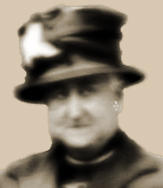Read it and honk
If you come here often, you may remember that I was recently forced to wade through several hundred pages of management training products so that I could snarl knowledgeably about the paucity of their diversity content.
I have a very low tolerance threshold for the majority of corporate-speak nonsense, which is why the "Lessons From Geese" section had me sniggering uncontrollably over my keyboard. (Well, me initially: the rest of my team very shortly thereafter...)
Having finally tracked down an alternate source of this inspiring breakthrough in the understanding of the team-working dynamic, I reproduce it here in all its glory for your reading pleasure.
You may want to apply the lessons it contains to your own workplace. Alternatively, you may just feel hugely relieved that you work for yourself, or are not currently in employment.
As each goose flaps its wings it creates an "uplift” for the birds that follow. By flying in a V formation, the whole flock adds 71% greater flying range than if each bird flew alone.
People who share a common direction and sense of community and family can get where they are going quicker and easier because they are travelling on the thrust of one another.
When a goose falls out of formation, it suddenly feels the drag and resistance of flying alone. It quickly moves back into formation to take advantage of the lifting power of the bird immediately in front of it.
If we have as much sense as a goose, we stay in formation with those headed where we want to go. We are willing to accept their help and give our help to others.
When the lead goose tires, it rotates back into the formation and another goose flies to the point position.
It pays to take turns doing the hard tasks and sharing leadership. As with geese, people are interdependent on each other’s skills and capabilities and unique arrangements of gifts, talents or resources.
The geese flying in formation honk to encourage those up front to keep up their speed.
We need to make sure our honking is encouraging. In teams where there is encouragement, the production is much greater. The power of encouragement (to stand by one’s heart or core values and encourage the heart and core of others) is actually the honking we seek.
When a goose gets sick, wounded or shot down, two geese drop out of formation and follow it down to help and protect it. They stay with it until it dies or is able to fly again.
Then, they launch out with another formation or catch up with the flock.
If we have as much sense as geese, we will stand by each other in difficult times as well as when we are strong.
There: wasn't that lovely? Don't you feel better now for having aspired to behave in a more goose-ly manner?
I'm not going to tell you what my own work colleagues said. I wouldn't want to pre-empt your comments. Suffice it to say that there was a great deal of wing-flapping and encouraging honking the day I emailed it to them. And all of it was sarcastic.
I have a very low tolerance threshold for the majority of corporate-speak nonsense, which is why the "Lessons From Geese" section had me sniggering uncontrollably over my keyboard. (Well, me initially: the rest of my team very shortly thereafter...)
Having finally tracked down an alternate source of this inspiring breakthrough in the understanding of the team-working dynamic, I reproduce it here in all its glory for your reading pleasure.
You may want to apply the lessons it contains to your own workplace. Alternatively, you may just feel hugely relieved that you work for yourself, or are not currently in employment.
As each goose flaps its wings it creates an "uplift” for the birds that follow. By flying in a V formation, the whole flock adds 71% greater flying range than if each bird flew alone.
People who share a common direction and sense of community and family can get where they are going quicker and easier because they are travelling on the thrust of one another.
When a goose falls out of formation, it suddenly feels the drag and resistance of flying alone. It quickly moves back into formation to take advantage of the lifting power of the bird immediately in front of it.
If we have as much sense as a goose, we stay in formation with those headed where we want to go. We are willing to accept their help and give our help to others.
When the lead goose tires, it rotates back into the formation and another goose flies to the point position.
It pays to take turns doing the hard tasks and sharing leadership. As with geese, people are interdependent on each other’s skills and capabilities and unique arrangements of gifts, talents or resources.
The geese flying in formation honk to encourage those up front to keep up their speed.
We need to make sure our honking is encouraging. In teams where there is encouragement, the production is much greater. The power of encouragement (to stand by one’s heart or core values and encourage the heart and core of others) is actually the honking we seek.
When a goose gets sick, wounded or shot down, two geese drop out of formation and follow it down to help and protect it. They stay with it until it dies or is able to fly again.
Then, they launch out with another formation or catch up with the flock.
If we have as much sense as geese, we will stand by each other in difficult times as well as when we are strong.
There: wasn't that lovely? Don't you feel better now for having aspired to behave in a more goose-ly manner?
I'm not going to tell you what my own work colleagues said. I wouldn't want to pre-empt your comments. Suffice it to say that there was a great deal of wing-flapping and encouraging honking the day I emailed it to them. And all of it was sarcastic.
The Editor











20 Comments:
OMG, that's awful! It reminds me of some of the BS I used to have to write in High School!
Now, Melissa, I don't think you're honking in a very encouraging way, there, are you?
;-)
What did lessons about geese have to say about the fact that their formations were often mistaken for alien spaceships during Project Blue Book?
I'm honking on the inside ;)
And OMG, look at my avatar! Does the FLAPPING count for nothing??!! :D
Would everyone laugh TOO loudly (or honk TOO rudely as the case may be) if I were to confess that, er, I've always kind of LIKED this story and don't see what's so awful about it ...
*sheepishly sneaking away to hide in a very very dark corner somewhere where I plan to screw my eyes shut and stick my fingers in my ears going "la la la la la la" so I won't have to see your responses!*
--Andrea
wecando.wordpress.com
The trouble with Management I Have Known (although of course not the present management) is that the honking comes less from the mouth end of the lead goose.
And that someone near the back will be honking an awful lot because they're under the impression that *they* are Lead Goose.
And I'm still unclear as to why goosedom is something to which I should aspire. Couldn't I, as a human, and my colleagues, as humans, all do our jobs properly and support each other with the stated aim being to do our jobs properly and support each other? Or is that just a silly thing to try to do when I could be pretending I'm a goose?
For some reason I find myself thinking of the relentlessly 'chirpy' team leader at Camp Chippewa in the movie 'Addams Family Values'.
Geese are delicious roasted with apple sauce.
Well I'm quite happy to fall out of formation, as you well know. I don't want to go anywhere near where they are going.
My favourite office analogy is not one I have ever seen put forward in the context of management training although, to me, it is equally apt. And rather than geese it involves another species from the animal kingdom:-
The hierarchical nature of management is like a troop of monkeys sitting in a tree. The higher up the management chain one is, the higher up the tree one gets to sit. Thus, when managers look down, all they see is a tree full of smiling faces looking up at them. However, when the lower orders look up, all they get to see is a load of arseholes.
Dude
the honking of geese always has sounded sarcastic to me.
The office nurse should perform percutaneous endoscopic gastrostomy (PEG) on these BS'ers and fill 'em up with a suitable remedy to rid them of their impacted thoughts.
C. Ascara
How disturbing to think that I could be travelling on someone else's thrust without being aware of it.
Do a couple of geese really hang around with their sick buddy or was that just made up?
Er, pass.
But the use of the word "thrust" was definitely ill-advised...
*clears throat*
You look for sense in training materials? Why, you silly goose!
(Really, am I the first person to think of this? Or is the phrase 'silly goose' another regionalism I've employed all my life without realizing what it is?)
In the UK, it would be pretty archaic: I'd be surprised to hear anyone under the age of about 80 coming out with it.
And, no, of course I don't look for sense in training materials: I just thought this little gem was extra-specially vomit-inducing.
Not to mention really of very limited practical application in situations where the lead goose is paid twice as much as the one right at the back...
Under the age of eighty!? I'm twenty five! That's well under the age of eighty!
Heck. I still wear sneakers, jeans, and whichever t-shirt seems the cleanest to work.
On the other hand, I spent last night drinking tea and shooing a cat away from my knitting while I watched a mysteriously taped episode (mysterious because...who tapes this?) of 'Murder, She Wrote'. So, perhaps, I am eighty under my skin. Some people are forever young. Others must logically be forever mature.
Is 'tickled pink' another oldster saying? Because I use it all the time. What about 'nifty' and 'spiffy'?
Oh, if only "we had as much sense as geese"!
Stuff like this always makes me think fondly of the fine work of Despair.com.
Oh, I am an avid admirer of Despair dot com's work.
Lady,
My mother uses "tickled pink".
She is 75.
"Nifty", I think, has no particular generational bias.
"Spiffy" is very 1920s. It is no longer frequently encountered.
I speak, of course, only of UK usage.
Post a Comment
<< Home